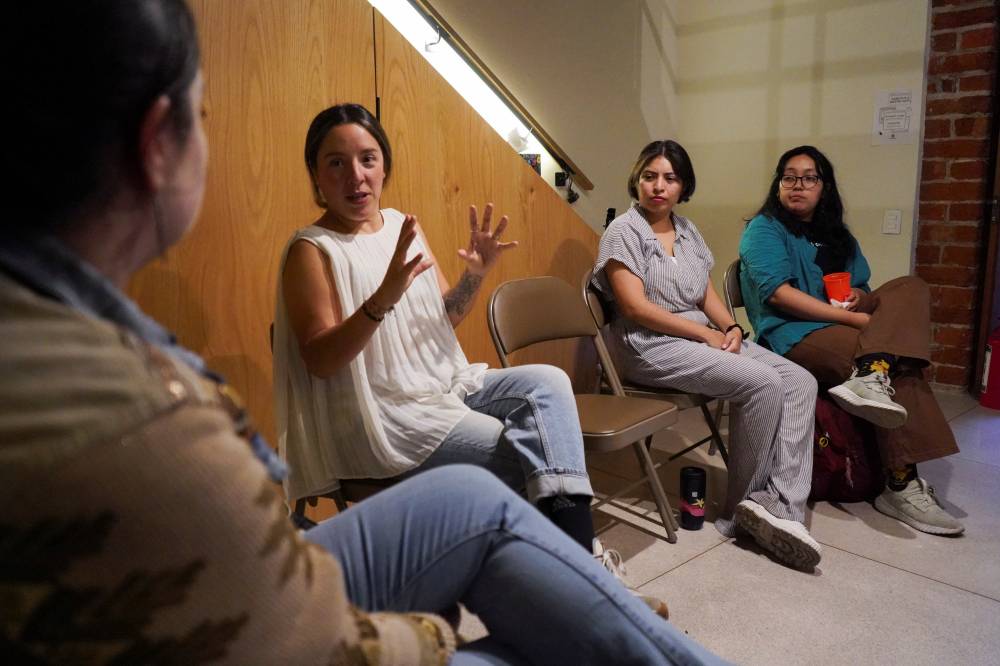Latin American women opting against motherhood

MEXICO CITY—A growing number of Latin American women are choosing not to give birth in a radical departure from the traditional family roles that have long dominated in the region.
Latin America and the Caribbean has experienced the most dramatic decline in birth rates of any region globally since 1950, according to data from the Economic Commission for Latin America and the Caribbean (CEPAL).
As in South Korea, this has raised fears of an aging population that burdens the taxpayer. But it also reflects how women are turning away from deeply-ingrained expectations of motherhood, in part because of a lack of state support and in part because they are prioritizing their own careers and livelihoods.
Mexican property manager Iran Sosa founded the Nunca Madres (Never Mothers) global online community for Spanish-speaking women in 2021 with Isabel Cortes, a Colombian commodities trader, to address a lack of space where Latinas could discuss social issues and cultural taboos regarding decisions about motherhood.

“When I was a little girl, the only representation I had of women who were not mothers were bitter, single, Disney stereotypes, the childless witch with no family who is abandoned and thrown away,” Sosa said. “Representation is always important, so we can imagine different futures and different choices.”
She said many of the group’s members say they feel pressured into motherhood, with relatives warning them they would regret the decision not to have children and would have no one to look after them as they grow old.
“People come with many fears,” she said. “But how else can you make this decision, but from a place of love?”
As well as an online space, Nunca Madres runs workshops where people – including mothers – share information and advice on how their decisions have affected their lives, from societal stigma to workplace discrimination to personal finance.

Cultural roots
“There is still a lot of taboo around that decision,” said Cortes. “It depends on your social circle but generally it is very deeply rooted in our culture that woman equals mother.”
There is little global data on why women choose not to have children, but a Pew Research survey of U.S. adults last year found 57 percent of respondents under 50 who said they were unlikely to have children gave as a reason that they just didn’t want to, 38 percent were concerned about the state of the world and 36 percent couldn’t afford it.
At Nunca Madres, Sosa said economic concerns were the top reason women gave, including the risk of losing their jobs or freezing career prospects, alongside the massive and often heavily lopsided unpaid labor of raising a child.

Climate change, which is contributing to worsening natural disasters in the region, came next. Women questioned the wisdom of raising children in places where water is being rationed.
Lucero Sanchez, a Mexican doctor who had decided when she was 16 that she did not want children, told Reuters that adult women seeking sterilization are routinely told by medical practitioners they are too young and will regret it, while teens who get pregnant are rarely told they are too young to have babies.
“The biggest challenge is society,” she said. “You are constantly being invited to make a different decision or your decision is being questioned as invalid.”
‘Against God, family’
Activists have warned that a political pushback in the United States against many hard-won rights – including abortion, access to contraception, and sex education in schools – is spilling over across the region.
Argentina’s President Javier Milei has cut funding for sex education, contraception and abortion pills – just a few years after the procedure was made legal. He told the United Nations in September that policies around reproductive rights were “ridiculous” given shrinking birth rates in Western countries.

In El Salvador, President Nayib Bukele has cracked down on a broad-ranging set of “gender ideology” policies that he has described as “against God and against the family.”
Those include sex education and access to contraception, say women’s rights groups. El Salvador, which is overwhelmingly Catholic, already has a total ban and severe penalties for abortion.
Andressa Cavalcante, a Brazilian family medic, said joining a group like Nunca Madres helped her feel “less like an alien.”
“Living in a country with a largely Christian-based culture that values the traditional family and considers the concept of having children as an act of faith, I often refrain from expressing my decision or opinion on the subject,” she said.
Cavalcante is now donating her eggs to women and LGBTQ+ couples who cannot have children.
While birth rates have shrunk globally since contraceptives became widely available in the 1960s, experts at CEPAL and UN Women have attributed the steeper Latin American decline to a failure by authorities to tackle domestic violence and provide support for prospective mothers.

In Europe policies such as free early childcare and paternity leave have had some success in boosting birth rates, but there are few such policies across Latin America, according to Martina Yopo, a sociologist at Chile’s Pontifical Catholic University.
Meanwhile, more women have been joining the workforce. The percentage of women in Latin America and the Caribbean in the labor force rose 8.8 percentage points to 51.3 percent between 1990 and 2023, according to the World Bank, even as they continue to shoulder the bulk of unpaid domestic and care work.
More support from governments in terms of social and healthcare security would help Latin American women as their roles shift, said Sosa.
“It’s about autonomy,” she said. “They need to recognize that we exist, and not only that, but many more generations of girls are growing up and making the same decisions.”
Reuters, the news and media division of Thomson Reuters, is the world’s largest multimedia news provider, reaching billions of people worldwide every day. Reuters provides business, financial, national and international news to professionals via desktop terminals, the world's media organizations, industry events and directly to consumers.

















